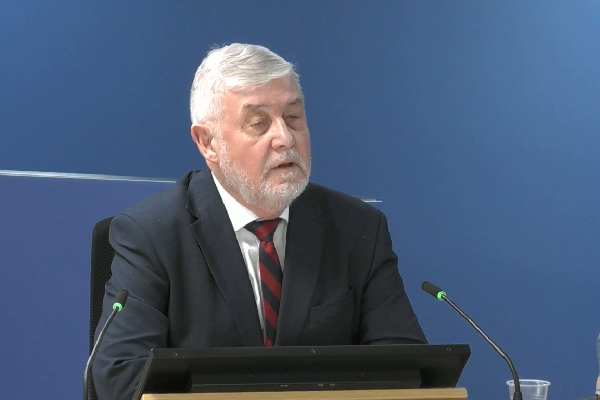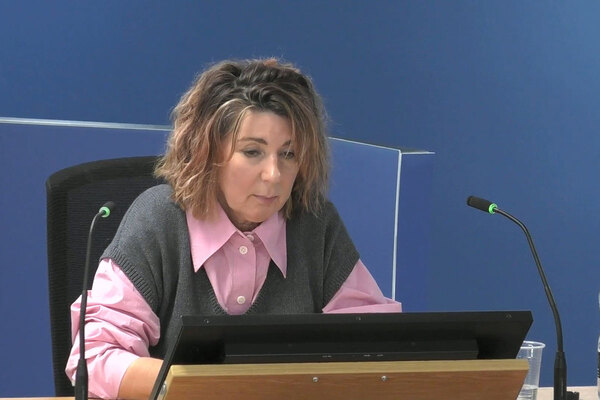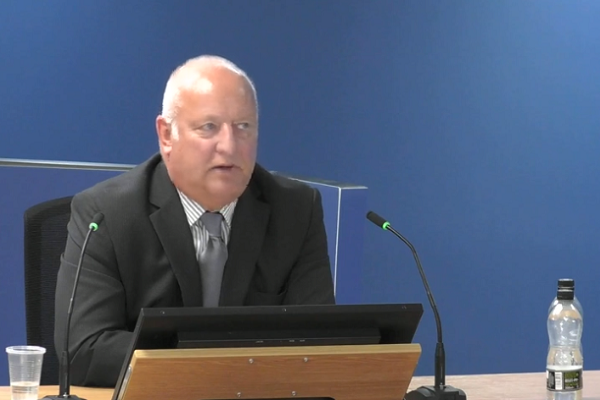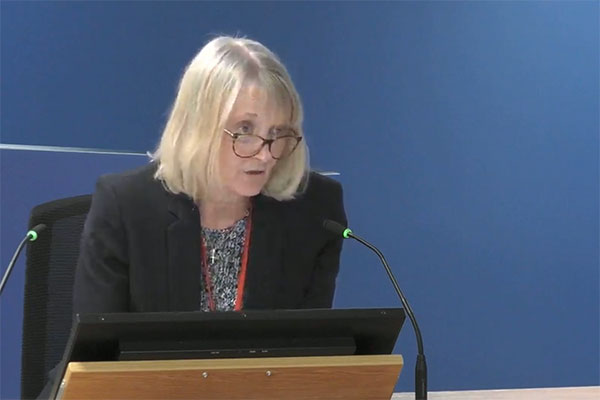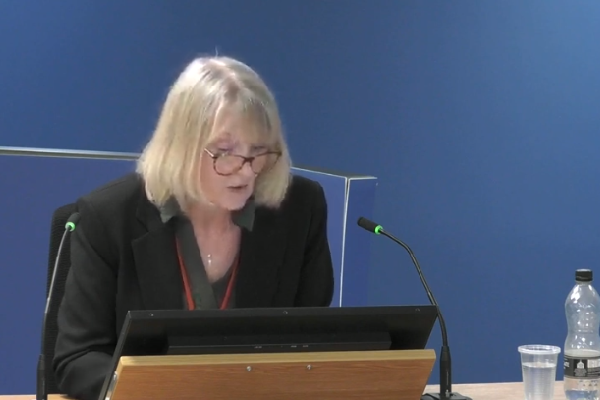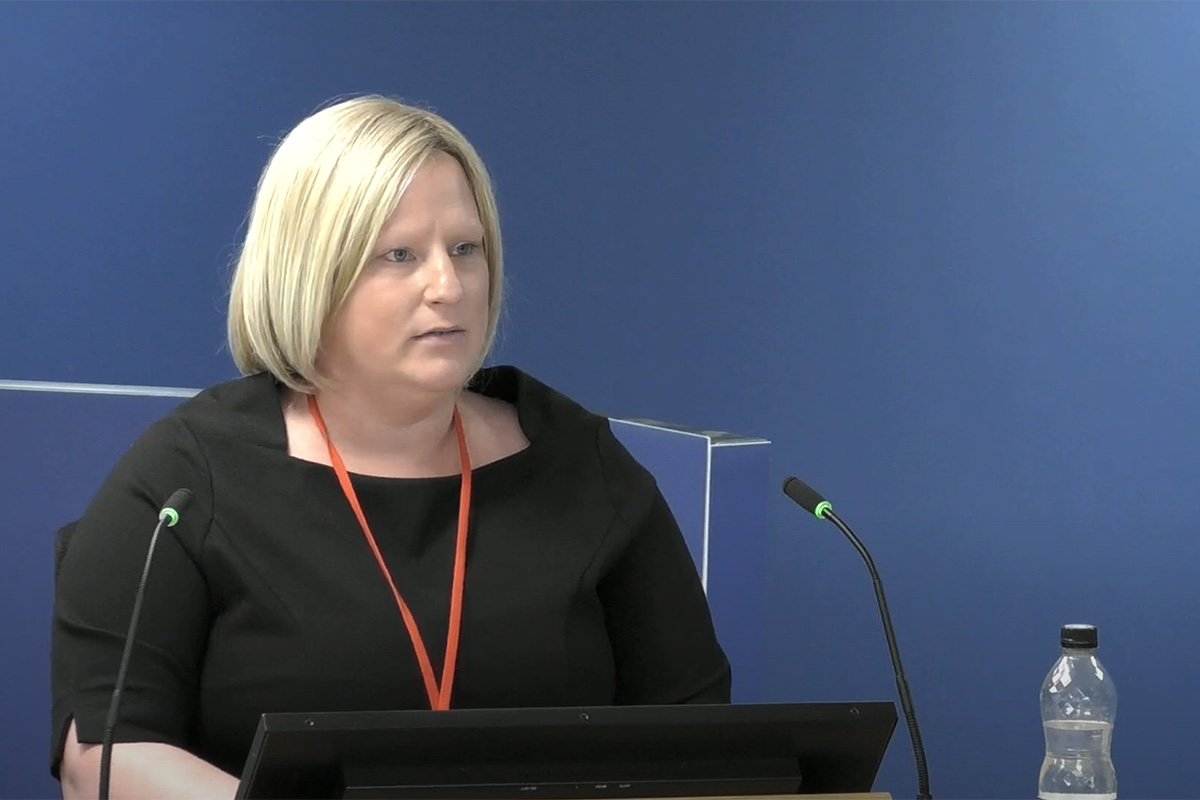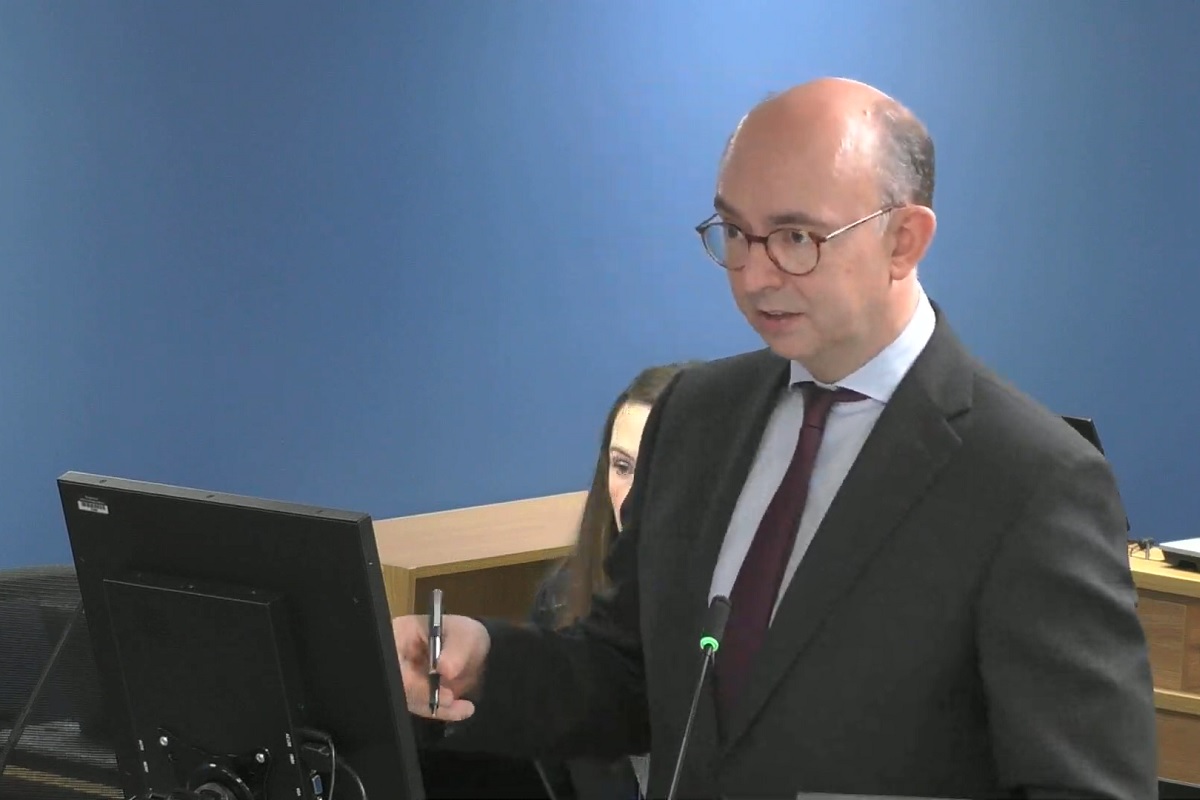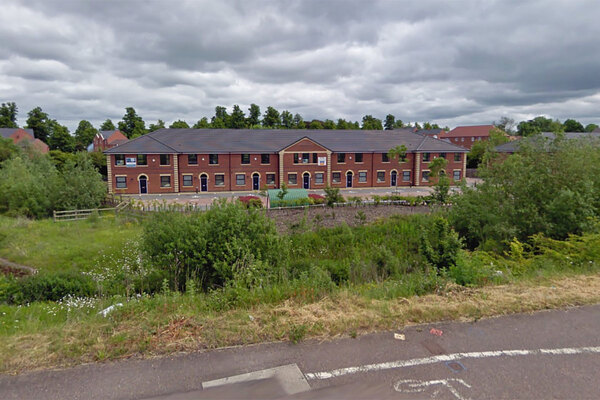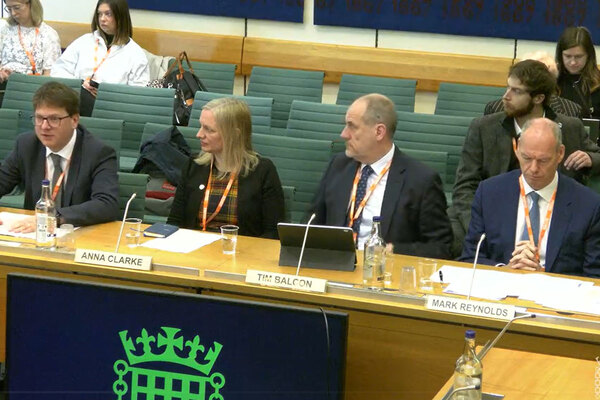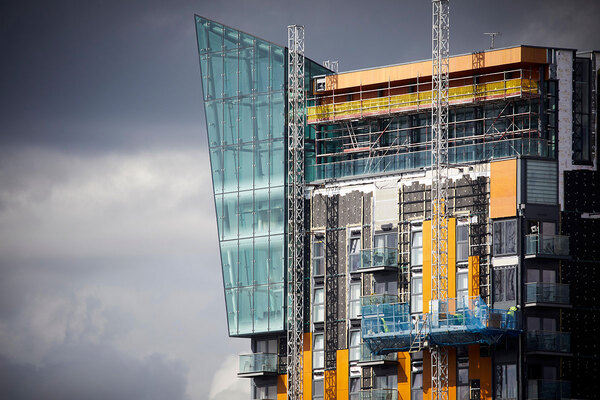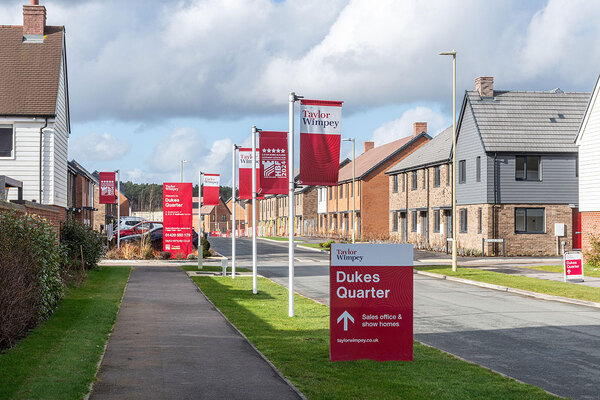Government rejected basic competency standards for fire risk assessors to avoid ‘burdens on business’, emails show
Government officials rejected calls to impose minimum standards of competency on fire risk assessors because “businesses are unlikely to welcome the burden of further regulation”, emails released today by the Grenfell Tower Inquiry show.
Sir Ken Knight, the government’s chief fire and rescue advisor between 2007 and 2013, was today grilled about the decision not to impose higher standards on risk assessors in the aftermath of the deadly July 2009 fire at Lakanal House.
It came as a senior industry figure who had called for such changes to be introduced said the government’s reluctance to regulate left guidance out of date and “beyond a joke”.
Fire safety rules introduced in 2005 created a new duty for building owners to carry out risk assessments of buildings containing multiple homes, but set no requirements for the competency of those carrying out the assessments.
Sir Ken’s own report into the 2009 fire, delivered just four weeks after the blaze, noted this weakness and suggested that the legislation “be amended accordingly”.
However, the government has never added this requirement, and emails released today show that officials concluded that the “government has neither the expertise nor the resources available to implement and manage such a scheme”.
The inquiry has previously heard that Grenfell Tower was assessed by sole trader Carl Stokes, a former firefighter who had completed a single week’s training in risk assessment and included a series of invented ‘post-nominals’ in documents he sent to building manager Kensington and Chelsea Tenant Management Organisation (KCTMO).
As the inquiry heard yesterday, Sir Ken was commissioned to produce a quick report into the Lakanal House fire, which was submitted just four weeks after the blaze killed six people.
In it, he noted the potential need to strengthen the requirements for risk assessments, explaining to the inquiry today that it was plain the assessment of risks at the building had been “inadequate” and had failed to identify “major failings” in the building.
But an email from Louise Upton, then head of the fire safety policy team at the Department for Communities and Local Government (DCLG), said she was “uncomfortable that any recommendations about legislation be made at such an early stage”.
One of Sir Ken’s colleagues emailed him to say Ms Upton believed “any review of the legislation would be unwelcome” as it would “question the whole rationale of the self-compliance regime”.
“Was that a reservation with which you had any sympathy?” asked counsel to the inquiry Andrew Kinnier QC.
“No, I don’t recall that I did and I don’t,” replied Sir Ken.
“Put bluntly… why did you not persist with the recommendation that [this legislation] be revised?” asked Mr Kinnier.
“I think because I believed that I had done what was asked of me to produce that very early and short report,” replied Sir Ken. “And that was… for others to take forward rather than for me in that role.”
“So once it was off your desk, it was job done from your perspective, then?” asked Mr Kinnier.
“No… I’ve always been passionate about fire safety and the safety of the public for the last 55 years. So that has never been my modus operandi,” replied Sir Ken.
The inquiry saw that two months later in September 2009, Ms Upton sent an email regarding a proposal for an accreditation scheme of risk assessors. She wrote: “Government has neither the expertise nor the resources available to implement and manage such a scheme.”
However, she added that ministers were “willing for officials to discuss with interested parties, the concept of a nationally recognised accreditation scheme” to be set up independently by industry.
Work to set up such a scheme was carried out in December 2009, but Ms Upton – who will give evidence to the inquiry next week – said there were “no plans” to make it mandatory as “experience suggested much could be achieved with a voluntary approach”.
In a submission to ministers in July 2010, she added: “Businesses are unlikely to welcome the burden of further regulation in this area.
“And any requirement in this area would undermine the fundamental principle of the Regulatory Reform (Fire Safety) Order, which is to allow those best placed to understand the risks to manage them down to an appropriate level as they see fit.”
“Did you agree with that statement?” Mr Kinnier asked Sir Ken at the inquiry.
“Yes, because it was the nature of the fire safety order itself that was built on the principles of the Health and Safety at Work Act,” replied Sir Ken.
The inquiry then saw that the Fire Sector Federation (FSF) – a joint industry group of fire and building safety professionals – produced a report in April 2013 recommending the creation of a “quality assurance board” and “competency criteria for fire risk assessors”.
This followed a letter from the coroner investigating the deaths at Lakanal House noting that the FSF was “well placed to shape policy at a national level” and inviting it to “consider whether it has a role in clarifying the scope of fire risk assessments and in offering further guidance as to training of fire risk assessors”.
In response to an email from Dennis Davis, executive officer at the FSF, Ms Upton wrote: “Oh Lordy! Let’s have a meeting sooner rather than later to see what we can do to steer the FSF away from its worst excesses in respect to control freakery.”
Civil servant Brian Martin added: “Looks to me like the FSF is in danger of trying to do more than is necessary, desirable or within its ability. But I’m always having these negative thoughts. So maybe I’ll just let them get on with it.”
Sir Ken, who had by this time retired from his role as chief fire and rescue advisor, replied: “I agree.”
He told the inquiry that this was “not meant to be negative about the FSF” but that he was merely concerned that the organisation was “over-engineering” the proposals and “doing more than what was necessary”.
“The panel will make of that what they will,” said Mr Kinnier.
Dennis Davis, an executive officer in the FSF, was shown a copy of the email correspondence by Mr Kinnier in the afternoon session, to which he replied: “I wasn’t aware of this attitude.”
Earlier, Sir Ken was asked about the failure to issue a specific warning to housing providers about combustible external panels, despite Ron Dobson, former commissioner of the London Fire Brigade, urging him to do so in December 2009, due to evidence showing that the panels on Lakanal House did not meet minimum standards.
The inquiry saw today that Terrie Alafat, then director of housing at DCLG, issued a “generic” warning that advised housing providers to carry out checks “if there is any doubt over the compliance”.
Mr Kinnier asked Sir Ken: “Would you accept the better way to phrase this letter would have encouraged housing authorities actively to check the walls for compliance with the relevant regulation?”
“Yes, I do,” said Sir Ken.
“And if nothing was done, then it certainly raised the risk of another fire like Lakanal or substantially similar to Lakanal happening. Do you accept that?” asked Mr Kinnier.
“Yes, it could,” said Sir Ken.
The inquiry saw further emails which showed that he was sent details of a deadly cladding fire in France in 2013 by a fire safety expert.
“Didn’t [this letter] prompt you to think, well, maybe Ron Dobson was on to something – there does need to be more active positive encouragement to social landlords and others to check the compliance of external walls?” asked Mr Kinnier.
Sir Ken said this “could have been an option”, but stressed that the letter was sent by Ms Alafat, not him.
“You could have prompted the director of housing to do something about it,” said Mr Kinnier.
“Yes, I could, and I didn’t,” replied Sir Ken.
Later in the afternoon session, Mr Davis was asked about a meeting of the Fire Risk Management Competency Council on 14 April 2014 at the London Fire Brigade’s headquarters.
The council is made up of a number of stakeholders concerned with the issue of the competency of the fire safety sector.
During this meeting, Mr Davis said that attendees shared a number of concerns about the wide variation in the competency of fire risk managers.
These included that third-party certification was often seen as “an unnecessary expense” and that there was a concern that fire risk assessments were “often commissioned on price rather than quality”.
Mr Davis did not know if this information was shared with government officials at the time.
He had said earlier that he thought any third-party scheme should be “officially mandated” by the government through legislation and that companies should agree to only use third-party-accredited assessors.
“So effectively using procurement as the means of guaranteeing competency?” asked Mr Kinnier.
“Yes,” he replied.
The April 2014 meeting led to the publication of a competency criteria for fire risk managers that set out principles and practice for such a role in October 2015.
But the document stated: “It is very unlikely that third party certification of this nature will become mandatory under legislation. Government acknowledges the benefits of third party certification and is now recognised that this includes a fire risk management system certification.”
Mr Davis was asked why it was considered unlikely. “I think going back to some of those earlier insights that you provided me, there was a reluctance for any form of additional mandatory controls on business, red tape, those sorts of arguments were around at the time.”
Mr Kinnier replied: “There was that reluctance to regulate.”
Mr Davis said: “I mean, fire safety is perceived as a burden, an addition, and therefore, trying to sort of promote it would naturally run you into those sorts of arguments.”
He said that the government’s reluctance did cause him and other industry experts concern and that he did not feel there was enough support from the government to promote the guidance the FSF and others were working on.
“So it’s a chicken and an egg. In one sense, you ask the sector, the sector produces guidance, but if there’s no promotion of that need, then really the two things, they just exist. But they don’t actually promote the thing you’re trying to achieve – rectifying safety,” he added.
Mr Davis had hoped that the competency criteria document would attract a “broad readership” but the support for the updated criteria appeared to have fallen off to the point where he felt like “we were talking an awful lot to ourselves”.
Mr Kinnier asked: “Why do you think support waned? And when would you identify, if you can, when that support started to diminish?”
Mr Davis said he thought the government had reduced the number of people with expertise in this area, which was in part borne out of “a background in complacency”, which was “drawn out of the fact that fire deaths were pretty stable”.
This was because community action programmes by the fire service “had a really good effect”.
He added: “So therefore, the perception may be politically that fire was under control.”
Following a 17 February 2017 meeting of the FSF, the industry group was so concerned with the current guidance that it planned to write to the Home Office with the offer “to take on the task of revising it”.
Later, Mr Davis said: “We were really concerned with the regulations getting completely out of date. Really concerned to the point, we were about to launch a really major campaign about updating the building regulations.”
“It was beyond a joke,” he added.
Mr Davis described a sense of foreboding that “people were not paying sufficient attention”.
Earlier in the session, Mr Davis said that concerns about a lack of competency among fire safety assessors was known as early as 2010, and it was the fact that “anyone could call themselves a fire risk assessor” that drove the discussion around the need for a nationally recognised accreditation scheme.
The inquiry continues.
Update: at 18.20pm on 10.3.2022
This story was updated to include evidence from Mr Davis.
Sign up for our weekly Grenfell Inquiry newsletter
Each week we send out a newsletter rounding up the key news from the Grenfell Inquiry, along with the headlines from the week
Already have an account? Click here to manage your newsletters
